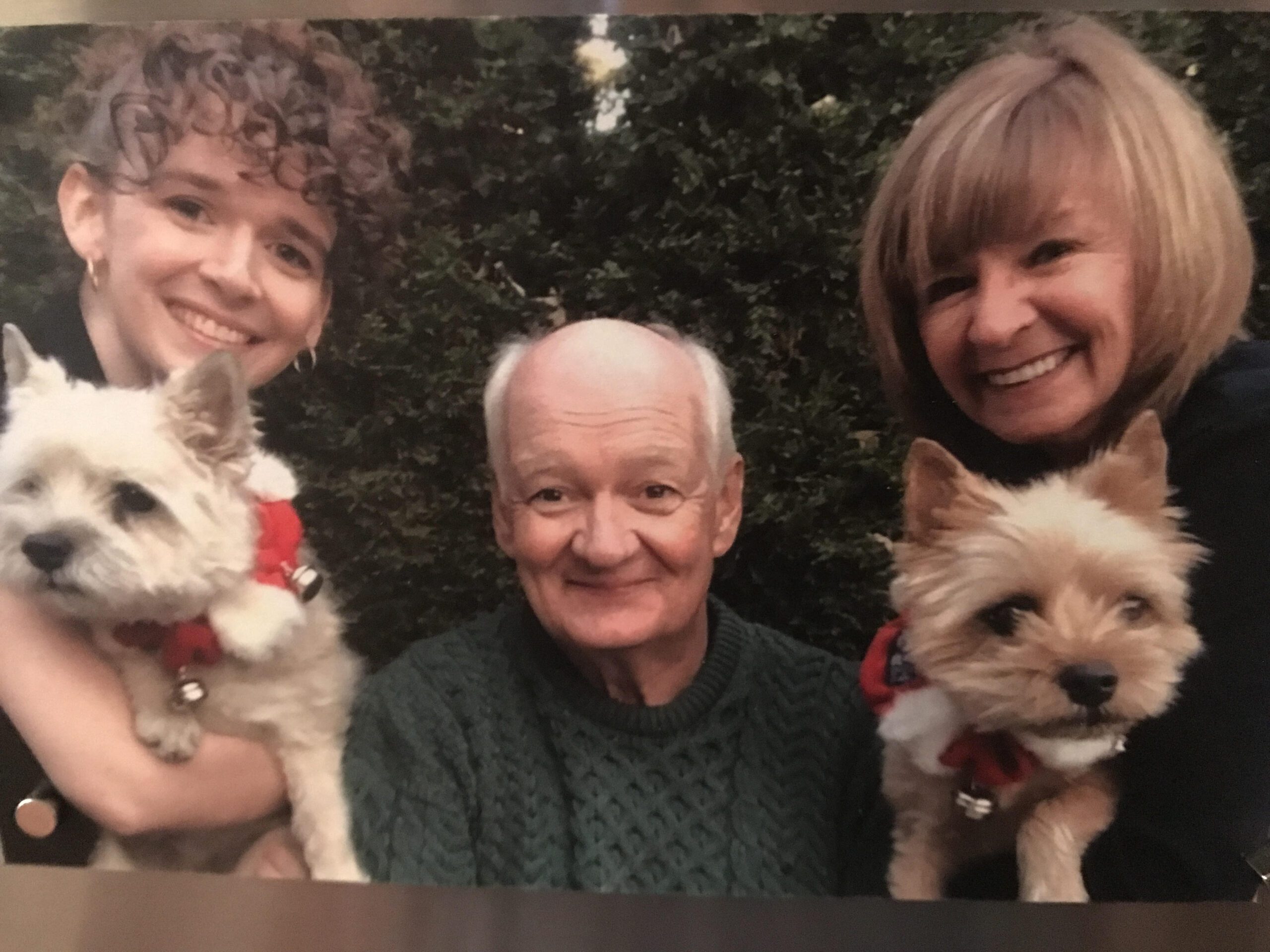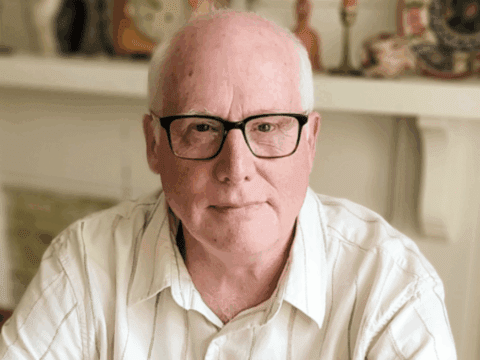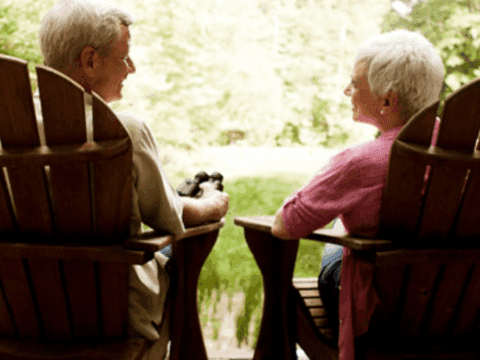Debra McGrath has been in the public eye for decades. One half of an improv comedy duo with her husband, Canadian comedian Colin Mochrie, McGrath has long graced televisions and media as an actress and comedian. But lately, she’s known for her outspoken activism after her daughter, Kinley Mochrie, came out as transgender.
A longtime member of Glebe Road United, McGrath revealed that being the mother of a transgender child has reoriented her perspectives on activism, faith, and where the two intersect. She spoke by phone with Broadview’s digital intern Stephanie Bai.
You may unsubscribe from any of our newsletters at any time.
Stephanie Bai: You frequently contribute to the Toronto Star [with letters to the editor], and you write pieces like the one calling out J.K. Rowling for “dishing out” abuse towards trans people, even after experiencing abuse herself. What draws you to taking very public stances on these very public issues?
Debra McGrath: What draws me, to be honest with you, is what I think draws anyone who does that. It’s standing up for people who don’t have a voice, or try to have a voice, and they’re shot down.
I think allies are important. And that’s not to say that I think I’m an expert because I’m an ally. On the contrary, there is so much we don’t know. And there are lots of mistakes I make. But I think it’s important to stand in solidarity with people.
SB: When Kinley, your daughter, came out to you as trans, you detailed the very personal experience you went through as a mother in an in-depth piece, talking about the nightmares you had for two nights after and the difficulties you faced seeing people discriminate against Kinley. When you wrote that piece, were you writing with any particular readers or people in mind?
DM: No, I was writing it for me. I was just journaling because I wanted to remember the experience. And then Kinley and I talked about it, and she said, “Write it down and put it out there.” So I did.
More on Broadview:
- Canada’s comedy couple talks faith, family and laughter
- Meet Theo Robinson, one of Canada’s first openly transgender Anglican priests
- Thank you, Rev. Theo Robinson, for reassuring this mom of a trans teen
Those first few days, as I’ve said to people, were never about not liking her choice or never about, “Oh, what am I going to do? My boy is not a boy anymore.” It went right to the core of a parent, which is, “Oh, my goodness, is she going to be safe?”
SB: With your posts and articles about your relationship with your daughter and your family, you’ve been receiving a lot of attention lately. Have you heard from other mothers of transgender children in response to your work?
DM: Yes, I hear from a lot of people. Before the pandemic-that-shall-not-be-named took over our lives, I would meet folks for lunch or a cup of coffee and we would talk. I’m mostly there to listen. Because generally, if parents are reaching out, they’re hurting, and they need to be heard.
This one woman went, “We support him. And, you know, he’s dressing like a boy now.” But she was sobbing. And I just said to her, “Why? Can you tell me specifically why you’re crying?”
She said yes and started crying, “I won’t be a grandmother.” And I said, “Well, you won’t be one type of grandmother. But that doesn’t mean you won’t be a grandmother.”
SB: I saw on your Instagram that Kinley recently went to the hospital for gender reassignment surgery. You wrote that because of COVID-19 protocols, you and your husband couldn’t stay with her in the hospital throughout her four-day stay. When you couldn’t see her, what was that experience like?
DM: It was horrible — I can’t lie. Her surgery was cancelled, and then the gender clinic here in Toronto at Women’s College Hospital called us and said, “We’re threading the needle between the first and second wave [of COVID-19]. Kinley, if you’re interested, we can do your surgery in three weeks.”
So we drove her up, and we’re all masked up. You know, that was early in the pandemic — we were all terrified. She was just frozen with fear. She walked in, and she’s crying, we’re crying, the people at the front doing the screening are crying.
Then [my husband and I] went back to the car. But we’re looking at her, and she’s turning around, waving. And I said to my husband, “Oh my, it’s like when she first went to camp, and we were saying goodbye.” She’d walk a few steps and then turn around and do the little wave. All of a sudden, she was 10 years old.
SB: In another piece you penned for the Toronto Star, you critiqued churches like Lorne Park Baptist, which you say use theology to justify firing a trans minister, revealing their God to be homophobic and transphobic. Throughout your long history with the Christian faith, what have you discerned your God to be like?
DM: I am on a journey. I question a lot. But I go more for the concept of Jesus than the concept of God.
Jesus was a man. And he’s a man who got angry. He’s a man that defied, he’s a man that had a temper. He had human frailties, but he walked the walk. He didn’t care about riches. He didn’t care about the hierarchy. He, I think, was the example of how we’re supposed to live.
I certainly will say this, and I would say to anyone in my congregation, I don’t believe in the guy in the sky. I believe in a spirit, if you will.
Today is Thursday. Talk to me next Wednesday, and it might be completely different.
SB: When Kinley came out as trans, did you ever feel like being the mother of a transgender daughter led you to reflect on your relationship with your faith, given the history of LGBTQ2S+ discrimination and transphobia in churches in Christianity?
DM: It’s interesting — it’s twofold. The answer is yes. There’s a shameful history.
I look at the history of the United Church. And even [Rev. Cindy Bourgeois, a trans minister] said when she joined the church and they were thrilled, “Make no mistake, not everyone was thrilled. There were people who got up, walked out the door, and never came back.”
On the other hand, I’m proud of the United Church. I’m proud of the fact that they are moving forward with intent, and trying to educate, and trying to reach out and bring in. So like anything, we can dwell on the ugly past. Or we can atone for it with sincere apologies, and we can move on with action.
SB: Are there any actionable areas in which you specifically want to see churches improve? Where would you like to see churches go from here?
DM: When [congregations] were asking, “How can we make people be welcome?” I said, “Go to their events.” Find out what’s going on in their lives, show up at something. Go to Pride.
Reach out, realize, explore the similarities. And they’re vast because basically, it’s that we’re all people who want to be happy, who want to be respected, who want to live our lives. And I hope more and more churches are going to become affirming churches.
Things change. I had a relative say to me, “Well, where have [LGBTQ2S+] people been?” I said, “They’ve been here since the beginning of time.” And I’ll tell you where they’ve been: hiding. Pretending to be other people and going through their whole lives not able to be who they are.
Not wanting to be president of a corporation. Not wanting to be a movie star. Not wanting to be an astronaut. They’ve wanted to be themselves, and they haven’t been allowed. That’s where they’ve been.
***
Stephanie Bai is Broadview’s 2021 digital intern.
This interview has been edited and condensed for length and clarity.















Thank you for this interview. Debra McGrath said exactly how I felt for my ‘daughter’ at the time she told me of her choice; “will she be safe? Especially after she decided her best choice was to start her new life fresh, far from home and move to the east coast. Alone. Thankfully, she made a lot of great friends there.